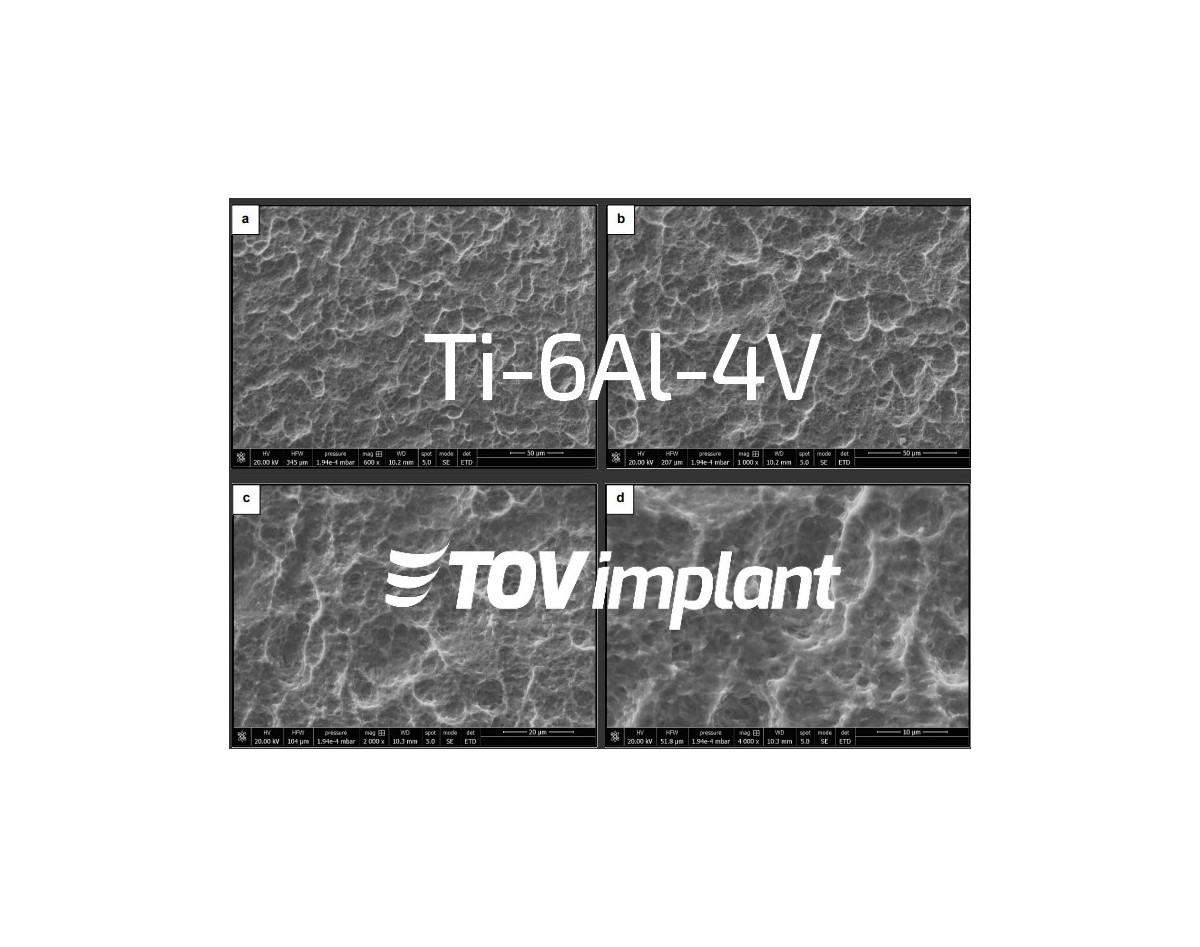Using Grade 5 Titanium for Dental Implants

The Advantages of Using Grade 5 Titanium for Dental Implants
The use of titanium in the manufacture of dental implants has become a standard due to its exceptional properties of biocompatibility, corrosion resistance, and mechanical robustness. However, not all titanium alloys are created equal. In this article, we will explore the advantages of Grade 5 titanium (Ti-6Al-4V) compared to Grade 4 titanium (commercially pure) and other commonly used alloys in implantology. We will also highlight why TOV Implant has chosen to use Grade 5 titanium for its dental implants.
Superior Mechanical Properties
Grade 5 titanium, also known as Ti-6Al-4V, is an alloy composed of 6% aluminum and 4% vanadium. This alloy is renowned for its superior mechanical properties compared to Grade 4 titanium, which is commercially pure titanium. Grade 5 offers higher tensile strength and hardness, which allows for better performance under the high mechanical loads often encountered in dental implants. This is why TOV Implant exclusively uses Grade 5 titanium to ensure the durability and reliability of its implants.
Biocompatibility and Osseointegration
Biocompatibility is a crucial property for implant materials. Titanium, in general, is extremely biocompatible, but alloys like Grade 5 offer additional benefits in terms of the speed and quality of osseointegration. The presence of aluminum and vanadium in Grade 5 enhances the surface of the implant, facilitating better integration with the surrounding bone. TOV Implant has chosen Grade 5 titanium for its implants because it ensures optimal osseointegration, essential for the long-term success of dental implants.
Corrosion Resistance
Another significant advantage of Grade 5 titanium is its superior corrosion resistance compared to Grade 4 titanium. This property is essential for the durability of dental implants, as it minimizes the risks of material degradation and associated complications over the long term. This corrosion resistance is particularly critical in the oral environment, which is constantly exposed to various substances and conditions. TOV Implant is committed to providing products that maintain their integrity and functionality even under challenging conditions, thanks to the use of Grade 5 titanium.
Flexibility and Adaptability
Grade 5 titanium also offers remarkable flexibility and adaptability, allowing manufacturers to create implants with complex geometries and surfaces treated to optimize osseointegration. This machinability allows for the development of implants that better meet the specific needs of patients and dental practitioners. TOV Implant uses this flexibility to design custom implants, offering personalized solutions for each patient.
Comparison with Grade 4 Titanium
While Grade 4 titanium is also used in dental implants due to its biocompatibility and corrosion resistance, it does not reach the same levels of mechanical strength as Grade 5. Grade 4 titanium is more malleable, which can limit its performance in applications requiring high tensile and fatigue strength. In contrast, Grade 5 offers an optimal combination of strength, durability, and biocompatibility, making it the preferred choice for many implantology professionals, including TOV Implant.
Conclusion
The use of Grade 5 titanium for the manufacture of dental implants presents numerous advantages compared to Grade 4 titanium and other alloys. Its superior mechanical properties, enhanced biocompatibility, increased corrosion resistance, and flexibility make it a material of choice for dental implants. By opting for implants made from Grade 5 titanium, TOV Implant can offer patients more durable and higher-performing solutions, ensuring better clinical outcomes and increased patient satisfaction.
References
- Niinomi, M., Narushima, T., & Nakai, M. (2018). Titanium in Medical and Dental Applications. Elsevier.
- Li, Y., Yang, C., Zhao, H., Qu, S., Li, X., & Li, Y. (2014). New developments of Ti-based alloys for biomedical applications. Materials, 7(3), 1709-1800.
- Elias, C. N., Lima, J. H. C., Valiev, R., & Meyers, M. A. (2008). Biomedical applications of titanium and its alloys. JOM, 60(3), 46-49.
- Geetha, M., Singh, A. K., Asokamani, R., & Gogia, A. K. (2009). Ti based biomaterials, the ultimate choice for orthopaedic implants – A review. Progress in Materials Science, 54(3), 397-425.
- Misch, C. E. (2008). Contemporary Implant Dentistry. Mosby.
- ASTM B348-13, Standard Specification for Titanium and Titanium Alloy Bars and Billets.
- ASTM F136-13, Standard Specification for Wrought Titanium-6Aluminum-4Vanadium ELI (Extra Low Interstitial) Alloy for Surgical Implant Applications.
- Peters, F., & Pilling, E. (2012). Dental Implant Materials: Titanium versus Zirconia. Clinical Implant Dentistry and Related Research, 14(6), 819-835.

Comments
No comment at this time!
Leave your comment